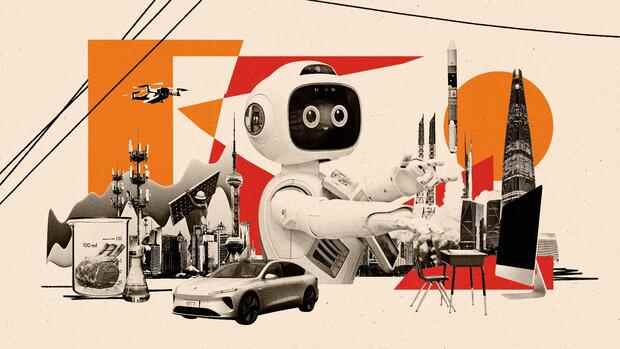In the weekly column we take turns writing about innovation and economic trends in Asia.
(Photo: Klawe Rzeczy)
Tokyo The supporters of electromobility like to rail against the Japanese car manufacturers. Most recently, the climate think tank InfluenceMap criticized the strategy of Toyota, Nissan and Honda: the manufacturers were the worst prepared for the transition to zero-emission mobility. Toyota in particular, as the world’s largest manufacturer, continues to advertise internal combustion engines. But how justified is this criticism really?
First, InfluenceMap relies on analysts’ own assessments and sales forecasts, IHS Markit to be precise. The difference between the forecasts of the companies and the expectations of the study is large: the market researchers assume that in 2029 Toyota will only achieve a meager 14 percent of its sales with battery-electric cars. The carmaker, on the other hand, expects that by 2030 every third Toyota will be battery-electric. A gap that can hardly be explained.
Secondly, unlike electric pioneer Tesla, which gets top marks on InfluenceMap, the Japanese are also planning to produce affordable electric cars. Most recently, Nissan and Mitsubishi unveiled a four-seater mini Stromer, which is said to be available from around 13,000 euros. Such models are needed to make electric mobility suitable for the masses.
Third, and most importantly, the Japanese are not relying on bold plans, but on realistic forecasts. They want to combine the financial sustainability of their companies with ecological sustainability. Their way of thinking therefore often leads to misunderstandings.
Top jobs of the day
Find the best jobs now and
be notified by email.
The numbers that the Japanese manufacturers present are usually not goals that you set yourself, but predictions of regional buyer behavior. These are usually – typically Japanese – very conservative. According to these predictions, the Japanese have by no means decided which type of drive will win in which region of the world.
Many drives for the world market
The deputy chief of Renault’s partner Nissan, Ashwani Gupta, recently said in a small press round: “From the point of view of investors and customers, it is too early for us to say that we are only marching in one direction.” Toyota boss Akio Toyoda speaks himself even more vehemently against technological monoculture in engine technology. “We believe that in uncertain situations it is better to keep your options open and react flexibly,” Toyoda said at the end of last year.
Toyota uses the high profits to put more types of drive on the road than any other company. The premium brand Lexus is to be fully battery-powered in the US, Europe and China markets by 2030. In addition to electric cars, the group is also developing hybrid cars and combustion engines that run on synthetic fuels, and fuel cells. Toyota has even recently sent a hydrogen combustion engine into a race in a rally.
The Japanese feel obliged to their customers, including those in developing and emerging countries. Toyota, Nissan and Mitsubishi therefore expect that hybrids and, to a limited extent, internal combustion engines will still have a future outside of Europe, China and the coastal cities of the USA – also ecologically. Because in developing countries, electricity will likely continue to be generated with coal, oil and gas for a long time to come.
With their technology-open strategy, the corporations are also arming themselves for future crises: The analysis company GlobalData predicts a “serious” battery shortage from 2025, which could slow down the electric car offensives of many manufacturers. The uncertainties will continue to increase due to the Ukraine war and the conflict between China and the USA and will put a strain on the supply chains.
From the point of view of the Japanese, many other questions remain unanswered: Where will the raw materials for batteries come from tomorrow? Who can say today whether it will be politically opportune tomorrow to buy batteries from China – or to sell cars in China? In this uncertainty, the Japanese are keeping several options open and are making their companies particularly agile. Because for Toyota boss Toyoda, responsiveness is the new recipe for survival: “It’s important that we can react flexibly.”
More: Lost $60 billion in ten months: Didi shows what can go wrong with Chinese stocks
